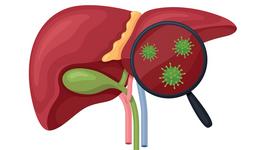Gene-Editing Clinical Trial Updates - What's New?
CMN Intelligence - The World’s Most Comprehensive Intelligence Platform for CRISPR-Genomic Medicine and Gene-Editing Clinical Development
Providing market intelligence, data infrastructure, analytics, and reporting services for the global gene-editing sector. Read more...
Caribou receives FDA clearance to expand clinical testing of CB-010 in lupus
Caribou Biosciences announced last week that the FDA has cleared its IND application for CB-010 for the treatment of lupus nephritis and extrarenal lupus.
CB-010 is an allogeneic anti-CD19 CAR-T cell therapy with a PD-1 knockout that is currently being evaluated the ANTLER Phase 1 trial for relapsed or refractory B cell non-Hodgkin lymphoma. This trial is currently enroling second-line large B-cell lymphoma patients in the dose expansion portion, based on encouraging data from the dose escalation portion of the trial.
CB-010 is designed to be an 'off the shelf' therapy, which is derived from healthy donor T cells that are edited using Caribou's proprietary Cas9 chRDNA technology. To generate CB-010, a CD19-specific CAR is inserted into the TRAC gene (which encodes the T cell receptor alpha constant) of healthy donor T cells. The PD-1 gene is also deleted in these cells. This gene encodes the PD-1 protein that functions as a safety switch on T cells that cancer cells turn on to protect themselves from T cell-mediated immune responses.
In Q2 2024, Caribou expects to report initial dose expansion data from the ANTLER trial and share the recommended Phase 2 dose for CB-010. Caribou Biosciences announced in December 2023 that it had received positive feedback from the FDA on a Phase 3 randomised controlled clinical trial for CB-010 for relapsed or refractory large B-cell lymphoma. According to a press release published by Caribou at that time, the FDA stated that the proposed comparator arm of platinum-based immunochemotherapy followed by high dose chemotherapy and autologous stem cell transplantation was acceptable. The company plans to initiate the Phase 3 pivotal trial by the end of 2024.
During an interview with CRISPR Medicine News last year, Caribou's Chief Scientific Officer Steve Kanner explained that lupus occurs when B cells produce anti-DNA antibodies, and that lupus patients are often treated with chemotherapy. Studies carried out elsewhere found that lymphodepletion in lupus patients followed by CAR-T cell therapy led to improvements in disease outcome. This can be explained by the fact that the diseased B cells that cause lupus become depleted and then replaced by healthy B cells when the bone marrow replenishes itself after lymphodepletion and CAR-T cell treatment. The Phase 1, multicenter, open label GALLOP clinical trial of CB-010 in patients with lupus is expected to initiate by year-end 2024.
Read the full press release published by Caribou Biosciences here.
Verve Therapeutics prioritises VERVE-102 programme following treatment-related adverse event in clinical trial of VERVE-101
In a press release published last week, Verve Therapeutics announced that it would pause enrolment in the ongoing Heart-1 Phase 1b trial of VERVE-101 for heterozygous familial hypercholesterolemia (HeFH).
VERVE-101 is a base-editing therapeutic candidate designed to permanently switch off the PCSK9 gene to reduce low-density lipoprotein cholesterol (LDL-C) levels. It is being evaluated in the Heart-1 Phase 1b clinical trial with endpoints of safety and tolerability as well as changes in blood PCSK9 protein and LDL-C levels in patients living with HeFH, established atherosclerotic cardiovascular disease, and uncontrolled hypercholesterolemia.
The announcement to pause enrolment was made following an adverse event in the sixth participant enrolled in 0.45 mg/kg dose cohort in the Heart-1 trial. The participant experienced asymptomatic Grade 3 transient serum alanine aminotransferase elevation and thrombocytopenia within the first four days after dosing. They did not experience bleeding or other symptoms related to the laboratory abnormalities, and the abnormalities resolved fully within a few days. According to its press release, Verve is investigating the laboratory abnormalities and based on those results, it expects to work with regulatory authorities to define a path forward for VERVE-101.
In total six participants have been dosed at 0.45 mg/kg of VERVE-101, with a total of 13 participants dosed in the study. For the first five participants in the 0.45 mg/kg cohort with follow-up to at least 28 days, VERVE-101 demonstrated time-averaged LDL-C reductions ranging from 21% to 73%, and averaging 46% (as of a data cut-off date of March 18, 2024). In the two patients with the longest follow-up in the 0.45 mg/kg or 0.6 mg/kg cohorts, LDL-C lowering has been durable out to 270 days, with follow-up ongoing.
In the same press release, Verve announced that the UK Medicines and Healthcare products Regulatory Agency and Health Canada have cleared its clinical trial applications for VERVE-102, with the Heart-2 Phase 1b clinical trial expected to initiate in the second quarter of this year. VERVE-102 uses the same base editor and guide RNA for PCSK9 but a different lipid nanoparticle delivery system than VERVE-101, which has already been used in third-party trials of gene-editing therapeutics candidates and has been well-tolerated in these trials.
Read the full press release published by Verve Therapeutics here.
iECURE announces FDA clearance to initiate trial of ECUR-506 in the United States
iECURE announced last week that the FDA has cleared its investigational new drug application for ECUR-506, a meganuclease-based therapeutic candidate designed to treat ornithine transcarbamylase deficiency (OTCD) in infants. OTCD is a rare X-linked inherited metabolic disorder that causes ammonia to accumulate in the blood.
Clearance to begin clinical testing of ECUR-506 in the US follows previous approval to begin the OTC-HOPE study by the Australian Therapeutic Goods Administration (TGA), and more recently, clearance to expand that trial in the UK by the UK Medicines & Healthcare Products Regulatory Agency.
ECUR-506 is the first ever clinical meganuclease-based in vivo gene insertion programme, and it is being developed using Precision BioSciences' ARCUS meganuclease technology. ECUR-506 relies on the delivery of two adeno-associated virus capsids, each carrying different payloads. ECUR-506 comprises two vectors, an ARCUS® nuclease vector targeting gene editing in the well-characterised PCSK9 gene locus and a donor vector that inserts the desired functional OTC gene. The cut in the PCSK9 site serves as the insertion site for the OTC gene, providing a potential path to permanent expression of a healthy gene.
The OTC-HOPE study is a Phase 1/2 first-in-human study in newborn boys with genetically confirmed neonatal onset OTC deficiency. The study's primary objective is to assess the safety and tolerability of up to two dose levels of ECUR-506 following intravenous administration of a single dose. Secondary objectives are to assess the pharmacokinetics and efficacy of ECUR-506. In addition, exploratory endpoints will assess disease-specific biologic markers, developmental milestones and quality of life.
Read the full press release published by iECURE here.
Tags
ArticleNewsClinical News UpdatesCancerFamilial Hypercholesterolemia, FHOrnithine transcarbamylase (OTC) deficiencyBase editorsCas12aMeganucleasesCaribou Biosciences, Inc.iECUREVerve Therapeutics, Inc.
CLINICAL TRIALS
Sponsors:
Base Therapeutics (Shanghai) Co., Ltd.
Sponsors:
Base Therapeutics (Shanghai) Co., Ltd.







